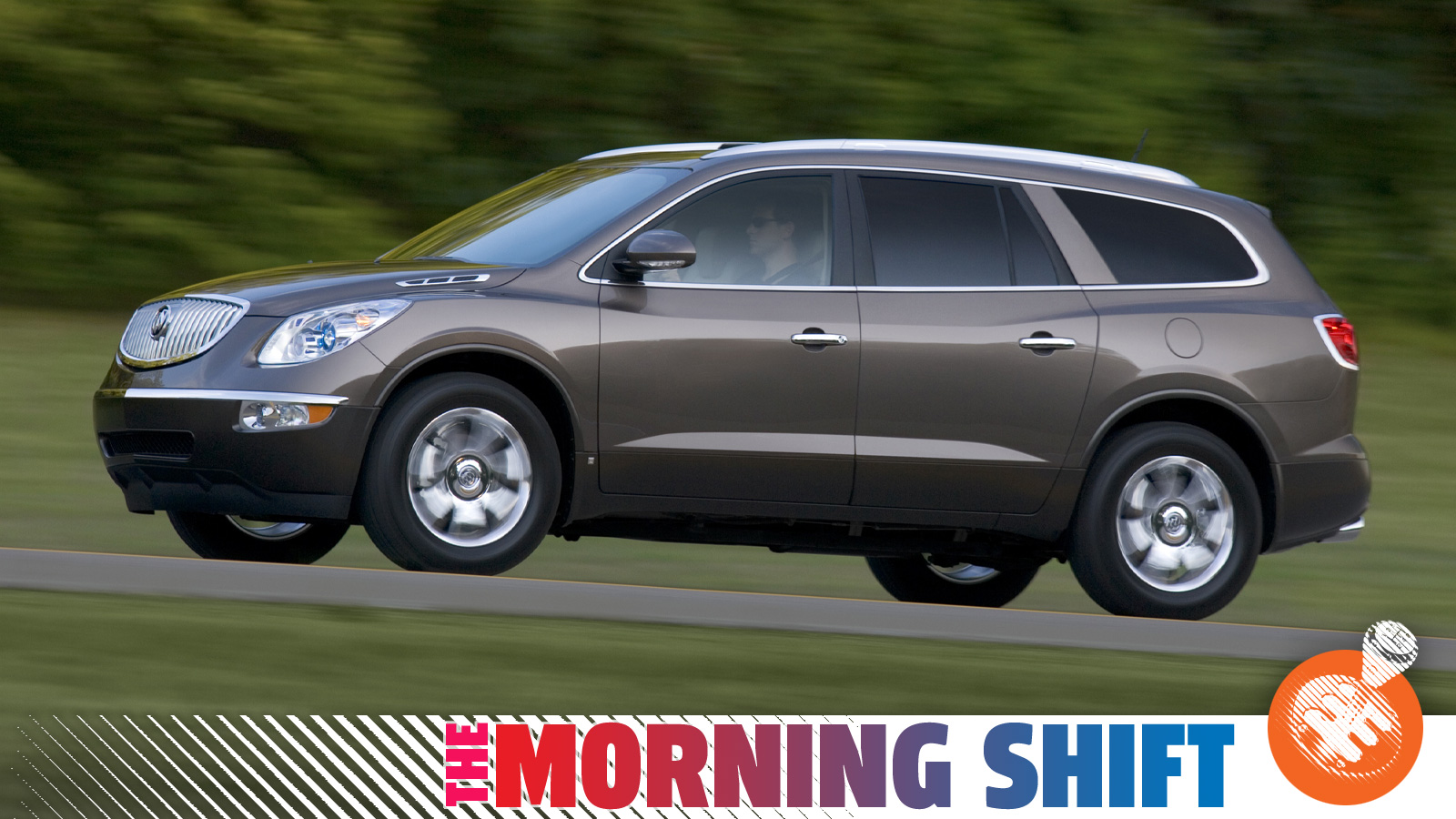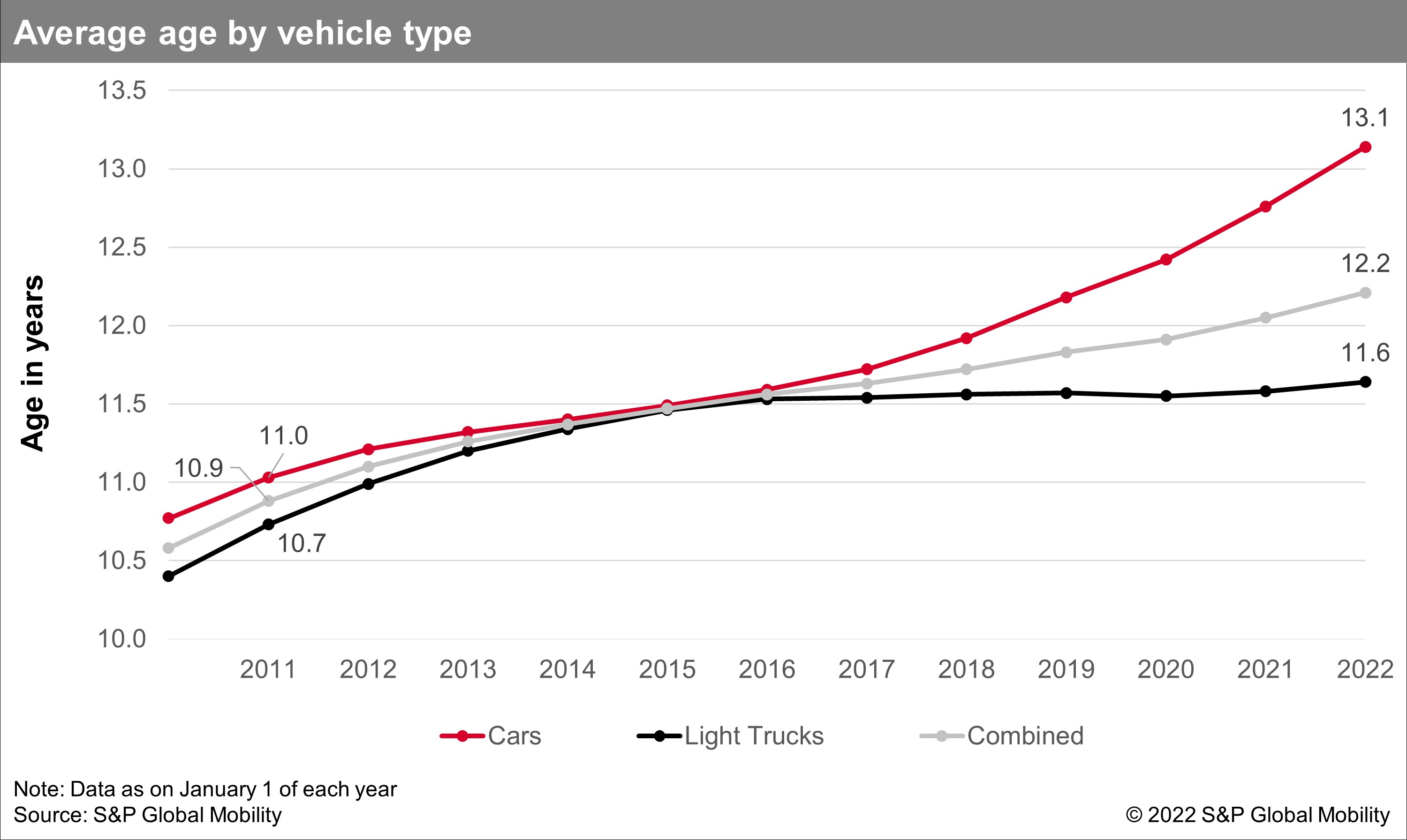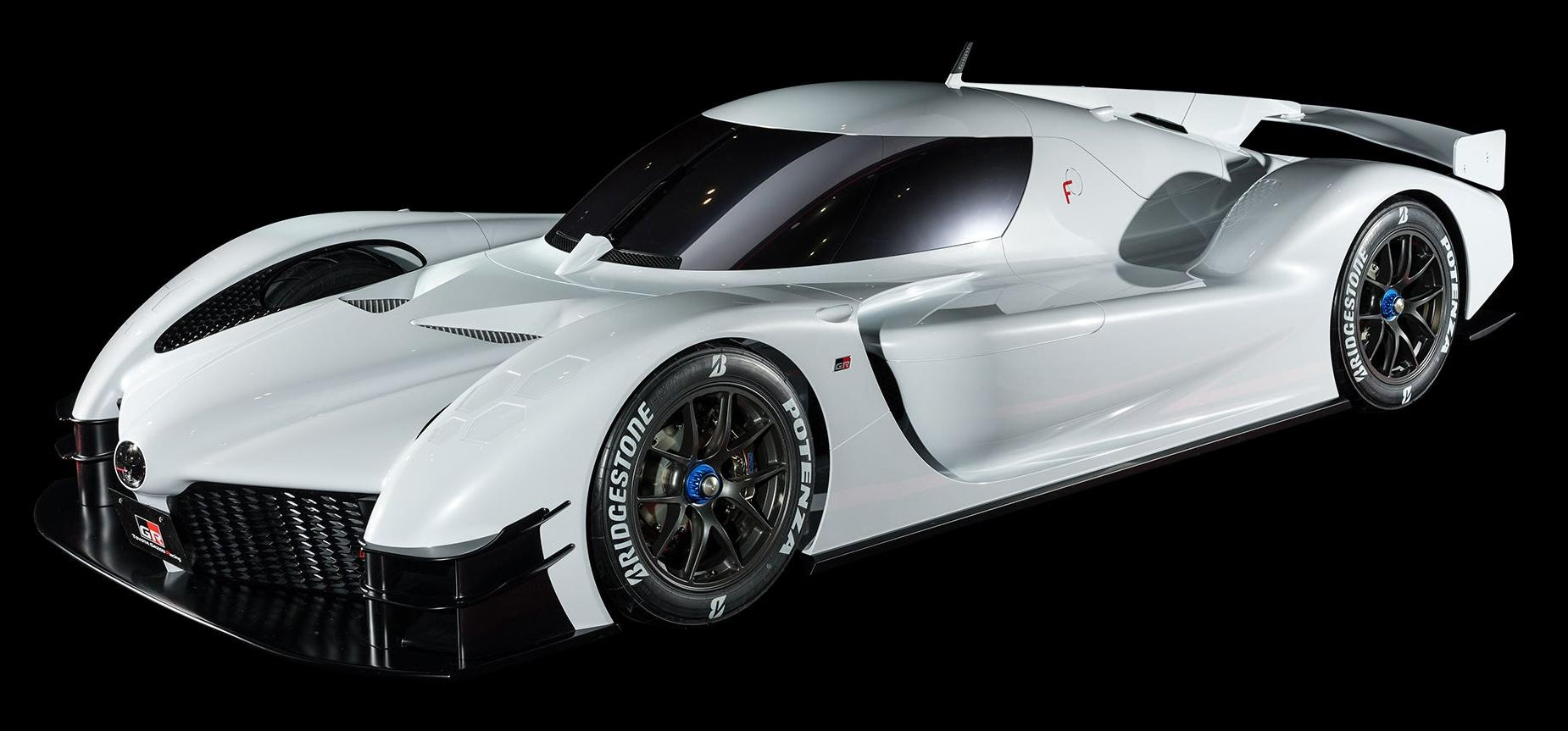High New And Used Prices Continue To Push Average Vehicle Age Upward: Report
The average age of a passenger car on American roads has crept up to 12.2 years in 2022 — the fifth straight year of increase.
Cars keep getting older, Mercedes wants to do business differently and BMW is looking into alternative energy sources to lessen its dependence on Russian natural gas. All that and more in The Morning Shift for Monday, May 23, 2022.
1st Gear: We All Know Why
12.2 years old — that's the age of the average car on U.S. roads as of this year, according to S&P Global Mobility. And if you don't know why that number is continuing its slow march upward, I envy you and the rock under which you live. From Automotive News:
The average age rose to 12.2 years in 2022 — a nearly 2 percent increase from the average life in 2021 of just over 12 years, according to the research.
S&P Global said in a statement that the increase was driven by the global microchip shortage and supply chain issues causing a "constrained supply of new cars and light trucks, amid a strong demand for personal transportation."
Todd Campau, automotive aftermarket practice lead for S&P Global, told Automotive News that supply shortages are causing owners to either keep their vehicles longer or purchase used ones.
"People do value their vehicles; people do still feel the need to have a vehicle available to them, maybe even more coming out of the pandemic, so that's caused the vehicle fleet just to grow a little bit," Campau said. "And because the new-vehicle sales haven't been available, it's been growing from within really from vehicles that have been on the road, and they're just staying available longer."
The most prudent thing to do right now is hold onto the car you've got, unless it's falling apart or life changes have made it untenable. And if you do have to buy, it likely makes more financial sense to buy used, which also contributes to the trend of cars getting older. Still, that's not to say that average vehicle age has increased exclusively because of the supply chain crisis. This has been the way for more than a decade now, though you could say the pace has really picked up since the pandemic, per the chart below:
If you want to know when S&P's analysts project that this hell will end, the good news is the end is supposedly in sight. The bad news is it won't be tomorrow, or even next year:
"I think there's definitely going to be upward pressure on average age through probably 2024, maybe even '25," Campau said. "Then I think it will level off once the new-vehicle supply starts to catch up with demand. There's even a potential, I think, that we could see average age maybe even come down slightly ... when that pent-up demand for new vehicles is released."
I'm no supply chain expert, but I'll contest here that you can't be disappointed if and when things don't improve in three years time if you set low expectations. Besides, the automakers have basically shown their hand on this one already.
2nd Gear: Rivian
Look, I don't get any enjoyment out of posting a story about Rivian's struggles every other day in The Morning Shift, but they just keep coming, and so I keep sharing. The latest is from Reuters, which sheds light on some customers' frustrations after having their orders skipped in the reservation line:
When Jeff Wells placed a reservation for a Rivian R1T pickup in early 2019, he was one of the first in line for a truck from the Amazon.com Inc-backed electric vehicle startup that at the time promised to tap in to a niche not served by other automakers.
But Wells, an accountant from Southern California, has become increasingly frustrated as he sees others, who placed their order years after him, receive trucks while he keeps waiting.
"It's just annoying and it feels like there's no order to how they're doing things," he said of Rivian.
Wells is one of dozens of reservation holders who in recent weeks have complained about unreliable delivery timelines and delays in online groups and forums.
Last month Rivian announced it would prioritize production of certain trims and options regardless of when orders were placed, hoping that consolidating similar vehicles would expedite things. This has predictably pissed some buyers off, though it's also the danger of placing an order with a startup before it's ever shipped a single product that wasn't a t-shirt.
"Building in few build combinations reduces complexity with our suppliers and in the plant and allows us to build a greater number of vehicles," Rivian told customers in an email.
That meant many early reservation-holders sticking with their original color preferences had their orders delayed.
Rivian in a statement to Reuters said delivery dates are not just based on the timing of a preorder, and that it was exploring new ways for customers to expedite deliveries.
The rest of Reuters' story is pretty much a recap of the ups and downs that led Rivian to this point, and it's worth a read if you want to get yourself up to speed on the details. It's been a rough road, and the path ahead isn't looking considerably smoother.
3rd Gear: This is Mercedes-Benz Exerting “Control”
Dealers are so passé, and Mercedes-Benz wants to move away from them in Europe, per Automotive News. Their replacement will be a direct sales model.
Mercedes-Benz plans to cut 15 to 20 percent of its dealerships in Germany, and about 10 percent globally, as part of broad overhaul of its distribution network, executives said.
Mercedes is also moving toward a more direct-sales – or "agency" – model, and is targeting 80 percent of European sales through this method by 2025, with 20 markets in total, from five today.
At the same time Mercedes is targeting 25 percent online sales by 2025.
Part of the reason it's doing this is to save on distribution and exert more "control over pricing." In other words, charge more.
The automaker says the moves will cut distribution costs and allow it to rein in incentives as the automaker seeks to move even farther upmarket with higher average selling prices.
"We want to have more proximity to the customer and therefore have better control over pricing," CFO Harald Wilhelm said last week at Mercedes' capital markets day. "That's why we are moving from the current dealer role."
Mercedes did not indicate if the dealership consolidation plans would impact its U.S. dealership base.
Automotive News ran a story about a year ago covering efforts in multiple states across the U.S. to allow direct vehicle sales. Legislation in Europe is more lax about that sort of thing, so think of that territory as a testbed for what automakers will try to lobby to do here down the line.
4th Gear: BMW Needs to Diversify its Energy Supply
The bans on Russian oil have much of the car industry worried, particularly in Europe. Germany has found itself especially in a bind, as it's the continent's foremost customer of Russian energy and the second-biggest spender globally, behind China. This has prompted BMW to redouble its efforts in researching alternative sources, which seems like a Pretty Big Thing to do all of a sudden, in a relatively short amount of time. From Reuters:
The carmaker, which relied on natural gas for 54% of its energy consumption in 2021, is examining where it can add solar panels to its plants and developing plans with local authorities to transport hydrogen to its plant in Leipzig, Germany.
"Hydrogen is very well-suited to lower or even fully compensate for gas demand," [BMW board member] Milan Nedeljkovic said.
"Our industry accounts for around 37% of German natural gas consumption," he said when asked what would happen to BMW's plants in the event of a halt to gas deliveries from Russia. "Not just BMW but the entire sector would come to a standstill."
BMW's plans reflect wider preparations underway across German industry to shift away from Russian gas and come up with a system to ration available supplies in the event of a sudden halt to deliveries.
Germany's attempts to ration gas and wean itself off Russian dependence on its own timeline could be accelerated if Russian companies start cutting off their supply over missed payments, as has already happened in Finland.
5th Gear: Mercedes-Benz Must’ve Been “Drunk” to Green-Light Project One
We end this very German brand-focused Morning Shift with a comment that actually came from the CEO of Mercedes, who recently seemed to regret giving the Project One hypercar a stamp of approval. From Autocar:
"The team at AMG and the [AMG] High Performance Powertrain Formula 1 arm came to us about four years ago and said 'we've got a great idea, let's put a Formula 1 engine into a road car'. I will have to go back to check the meeting minutes, but I'm sure we were drunk when we said yes," Källenius said in Monaco in answer to a question about when the One would appear in its final form.
In Källenius' defense, back in 2018 there was no pandemic, no supply chain shortage, no war in Ukraine and no threat of global recession. That's not to say the company's board couldn't have canceled the car after those things did happen, though, so good on it for sticking to the plan. Personally I'm not losing sleep whether the 275 people who can afford a Project One get theirs, but there's something nice about observing automakers build the damn thing from afar. We'll supposedly hear an official update on the Project One soon.
Neutral: Don’t Forget the Hypercars We Lost
That Project One quote reminds me, Toyota still owes us one.


